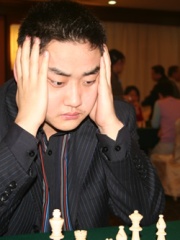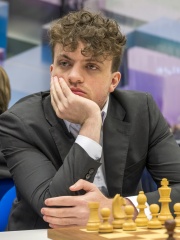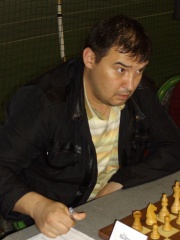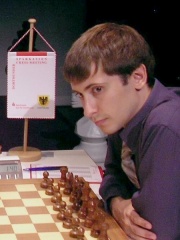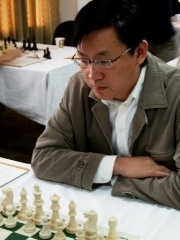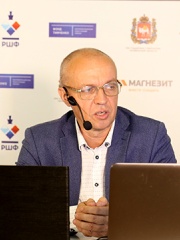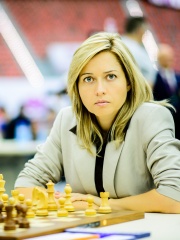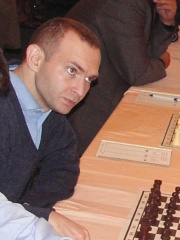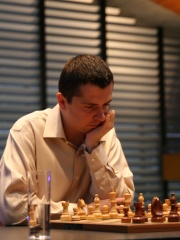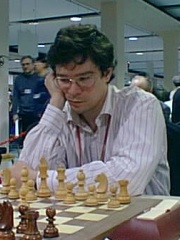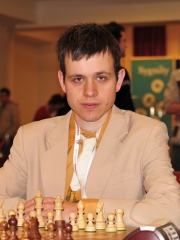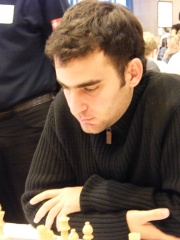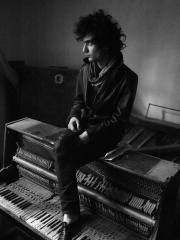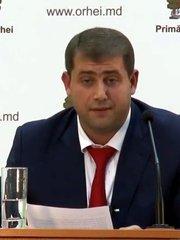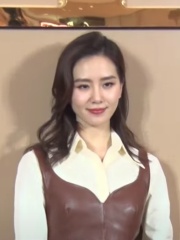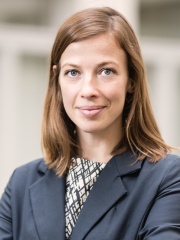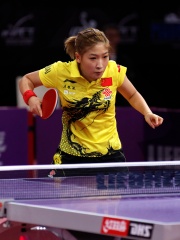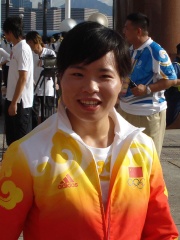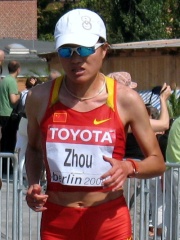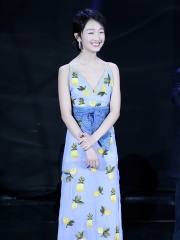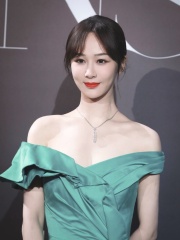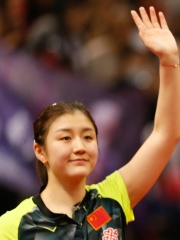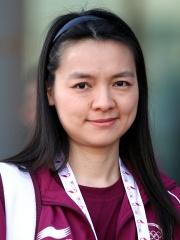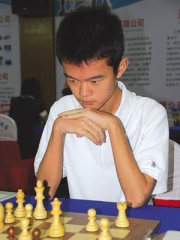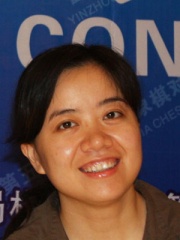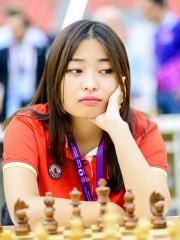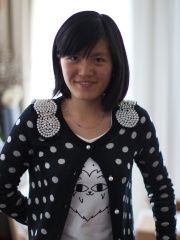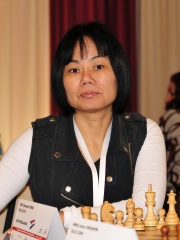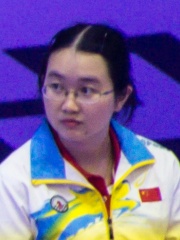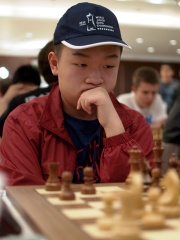チェス選手
Wang Yue
1987 - 現在
Memorability Metrics
Page views of Wang Yue by language
Among チェス選手
Among チェス選手, Wang Yue ranks 319 out of 461. Before him are Vasil Spasov, Hans Niemann, Aleksej Aleksandrov, Dmitry Jakovenko, Ye Jiangchuan, and Sergei Shipov. After him are Natalia Zhukova, Vadim Milov, Alexander Onischuk, Rustem Dautov, David Navara, and Leinier Domínguez.
Most Popular チェス選手 in Wikipedia
Go to all RankingsVasil Spasov
1971 - Present
HPI: 45.27
Rank: 313
Hans Niemann
2003 - Present
HPI: 45.11
Rank: 314
Aleksej Aleksandrov
1973 - Present
HPI: 44.98
Rank: 315
Dmitry Jakovenko
1983 - Present
HPI: 44.86
Rank: 316
Ye Jiangchuan
1960 - Present
HPI: 44.85
Rank: 317
Sergei Shipov
1966 - Present
HPI: 44.79
Rank: 318
Wang Yue
1987 - Present
HPI: 44.79
Rank: 319
Natalia Zhukova
1979 - Present
HPI: 44.74
Rank: 320
Vadim Milov
1972 - Present
HPI: 44.49
Rank: 321
Alexander Onischuk
1975 - Present
HPI: 44.48
Rank: 322
Rustem Dautov
1965 - Present
HPI: 44.44
Rank: 323
David Navara
1985 - Present
HPI: 44.39
Rank: 324
Leinier Domínguez
1983 - Present
HPI: 44.27
Rank: 325
Contemporaries
Among people born in 1987, Wang Yue ranks 501. Before him are Eri Kitamura, Benoît Costil, Hannah Hoekstra, Tigran Hamasyan, Bow Wow, and Jason Day. After him are Ilan Shor, Liu Shishi, Aiden English, Li Andersson, Martin Harnik, and Michelle Maylene.
Others Born in 1987
Go to all RankingsEri Kitamura
ACTOR
1987 - Present
HPI: 44.85
Rank: 495
Benoît Costil
SOCCER PLAYER
1987 - Present
HPI: 44.84
Rank: 496
Hannah Hoekstra
ACTOR
1987 - Present
HPI: 44.83
Rank: 497
Tigran Hamasyan
MUSICIAN
1987 - Present
HPI: 44.81
Rank: 498
Bow Wow
SINGER
1987 - Present
HPI: 44.80
Rank: 499
Jason Day
GOLFER
1987 - Present
HPI: 44.79
Rank: 500
Wang Yue
CHESS PLAYER
1987 - Present
HPI: 44.79
Rank: 501
Ilan Shor
POLITICIAN
1987 - Present
HPI: 44.78
Rank: 502
Liu Shishi
ACTOR
1987 - Present
HPI: 44.78
Rank: 503
Aiden English
WRESTLER
1987 - Present
HPI: 44.76
Rank: 504
Li Andersson
POLITICIAN
1987 - Present
HPI: 44.76
Rank: 505
Martin Harnik
SOCCER PLAYER
1987 - Present
HPI: 44.75
Rank: 506
Michelle Maylene
MODEL
1987 - Present
HPI: 44.73
Rank: 507
In 中国
Among people born in 中国, Wang Yue ranks 1,255 out of NaN. Before him are Liu Shiwen (1991), The8 (1997), Ye Jiangchuan (1960), Chen Yanqing (1979), Gülnezer Bextiyar (1992), and Zhou Chunxiu (1978). After him are Zhou Dongyu (1992), Liu Shishi (1987), Ma Yanhong (1964), Yang Zi (1992), An Qi (1981), and Chen Meng (1994).
Others born in 中国
Go to all RankingsLiu Shiwen
TABLE TENNIS PLAYER
1991 - Present
HPI: 44.88
Rank: 1,249
The8
MUSICIAN
1997 - Present
HPI: 44.86
Rank: 1,250
Ye Jiangchuan
CHESS PLAYER
1960 - Present
HPI: 44.85
Rank: 1,251
Chen Yanqing
ATHLETE
1979 - Present
HPI: 44.83
Rank: 1,252
Gülnezer Bextiyar
ACTOR
1992 - Present
HPI: 44.81
Rank: 1,253
Zhou Chunxiu
ATHLETE
1978 - Present
HPI: 44.80
Rank: 1,254
Wang Yue
CHESS PLAYER
1987 - Present
HPI: 44.79
Rank: 1,255
Zhou Dongyu
ACTOR
1992 - Present
HPI: 44.78
Rank: 1,256
Liu Shishi
ACTOR
1987 - Present
HPI: 44.78
Rank: 1,257
Ma Yanhong
1964 - Present
HPI: 44.74
Rank: 1,258
Yang Zi
ACTOR
1992 - Present
HPI: 44.74
Rank: 1,259
An Qi
SOCCER PLAYER
1981 - Present
HPI: 44.74
Rank: 1,260
Chen Meng
TABLE TENNIS PLAYER
1994 - Present
HPI: 44.73
Rank: 1,261
Among チェス選手 In 中国
Among チェス選手 born in 中国, Wang Yue ranks 8. Before him are Zhu Chen (1976), Ding Liren (1992), Xu Yuhua (1976), Ju Wenjun (1991), Hou Yifan (1994), and Ye Jiangchuan (1960). After him are Qin Kanying (1974), Peng Zhaoqin (1968), Tan Zhongyi (1991), Zhang Zhong (1978), Li Chao (1989), and Wei Yi (1999).
Zhu Chen
1976 - Present
HPI: 51.56
Rank: 2
Ding Liren
1992 - Present
HPI: 51.41
Rank: 3
Xu Yuhua
1976 - Present
HPI: 48.48
Rank: 4
Ju Wenjun
1991 - Present
HPI: 46.57
Rank: 5
Hou Yifan
1994 - Present
HPI: 46.15
Rank: 6
Ye Jiangchuan
1960 - Present
HPI: 44.85
Rank: 7
Wang Yue
1987 - Present
HPI: 44.79
Rank: 8
Qin Kanying
1974 - Present
HPI: 43.82
Rank: 9
Peng Zhaoqin
1968 - Present
HPI: 43.29
Rank: 10
Tan Zhongyi
1991 - Present
HPI: 43.12
Rank: 11
Zhang Zhong
1978 - Present
HPI: 43.09
Rank: 12
Li Chao
1989 - Present
HPI: 41.38
Rank: 13
Wei Yi
1999 - Present
HPI: 40.53
Rank: 14
